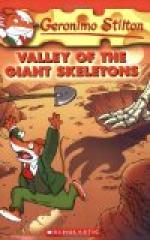And before Bryce could protest, Ogilvy had thrown open the office door and called the glad tidings to Moira, who was working in the next room; whereupon Moira’s wonderful eyes shone with that strange lambent flame. She clasped her hands joyously. “Oh, how wonderful!” she exclaimed “I’ve always wanted Miss Shirley to meet Mr. Bryce.”
Again Bryce was moved to protest, but Buck Ogilvy reached around the half-opened door and kicked him in the shins. “Don’t crab my game, you miserable snarley-yow. Detract one speck from that girl’s pleasure, and you’ll never see that temporary franchise,” he threatened. “I will not work for a quitter—so, there!” And with his bright smile he set out immediately upon the trail of the city council, leaving Bryce Cardigan a prey to many conflicting emotions, the chief of which, for all that he strove to suppress it, was riotous joy in the knowledge that while he had fought against it, fate had decreed that he should bask once more in the radiance of Shirley Sumner’s adorable presence. Presently, for the first time in many weeks, Moira heard him whistling “Turkey in the Straw.”
CHAPTER XXVI
Fortunately for the situation which had so suddenly confronted him, Bryce Cardigan had Mr. Buck Ogilvy; and out of the experiences gained in other railroad-building enterprises, the said Ogilvy, while startled, was not stunned by the suddenness and immensity of the order so casually given him by his youthful employer, for he had already devoted to the matter of that crossing the better part of the preceding night. Also he had investigated, indexed, and cross-indexed the city council with a view to ascertaining how great or how little would be the effort he must devote to obtaining from it the coveted franchise.
“Got to run a sandy on the Mayor,” Buck soliloquized as he walked rapidly uptown. “And I’ll have to be mighty slick about it, too, or I’ll get my fingers in the jam. If I get the Mayor on my side—if I get him to the point where he thinks well of me and would like to oblige me without prejudicing himself financially or politically—I can get that temporary franchise. Now, how shall I proceed to sneak up on that oily old cuss’s blind side?”
Two blocks farther on, Mr. Ogilvy paused and snapped his fingers vigorously. “Eureka!” he murmured. “I’ve got Poundstone by the tail on a downhill haul. Is it a cinch? Well, I just guess I should tell a man!”
He hurried to the telephone building and put in a long-distance call for the San Francisco office of the Cardigan Redwood Lumber Company. When the manager came on the line, Ogilvy dictated to him a message which he instructed the manager to telegraph back to him at the Hotel Sequoia one hour later; this mysterious detail attended to, he continued on to the Mayor’s office in the city hall.
Mayor Poundstone’s bushy eyebrows arched with interest when his secretary laid upon his desk the card of Mr. Buchanan Ogilvy, vice-president and general manager of the Northern California Oregon Railroad. “Ah-h-h!” he breathed with an unpleasant resemblance to a bon vivant who sees before him his favourite vintage. “I have been expecting Mr. Ogilvy to call for quite a while. At last we shall see what we shall see. Show him in.”




